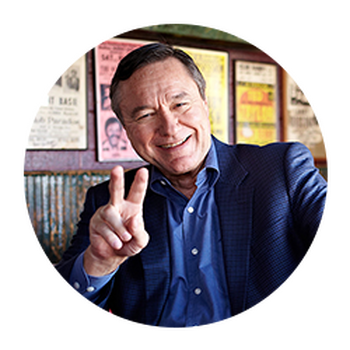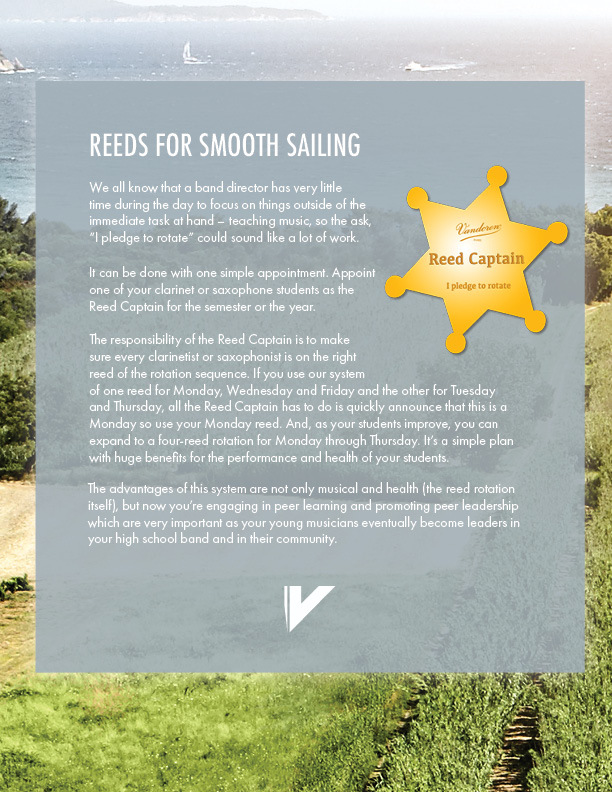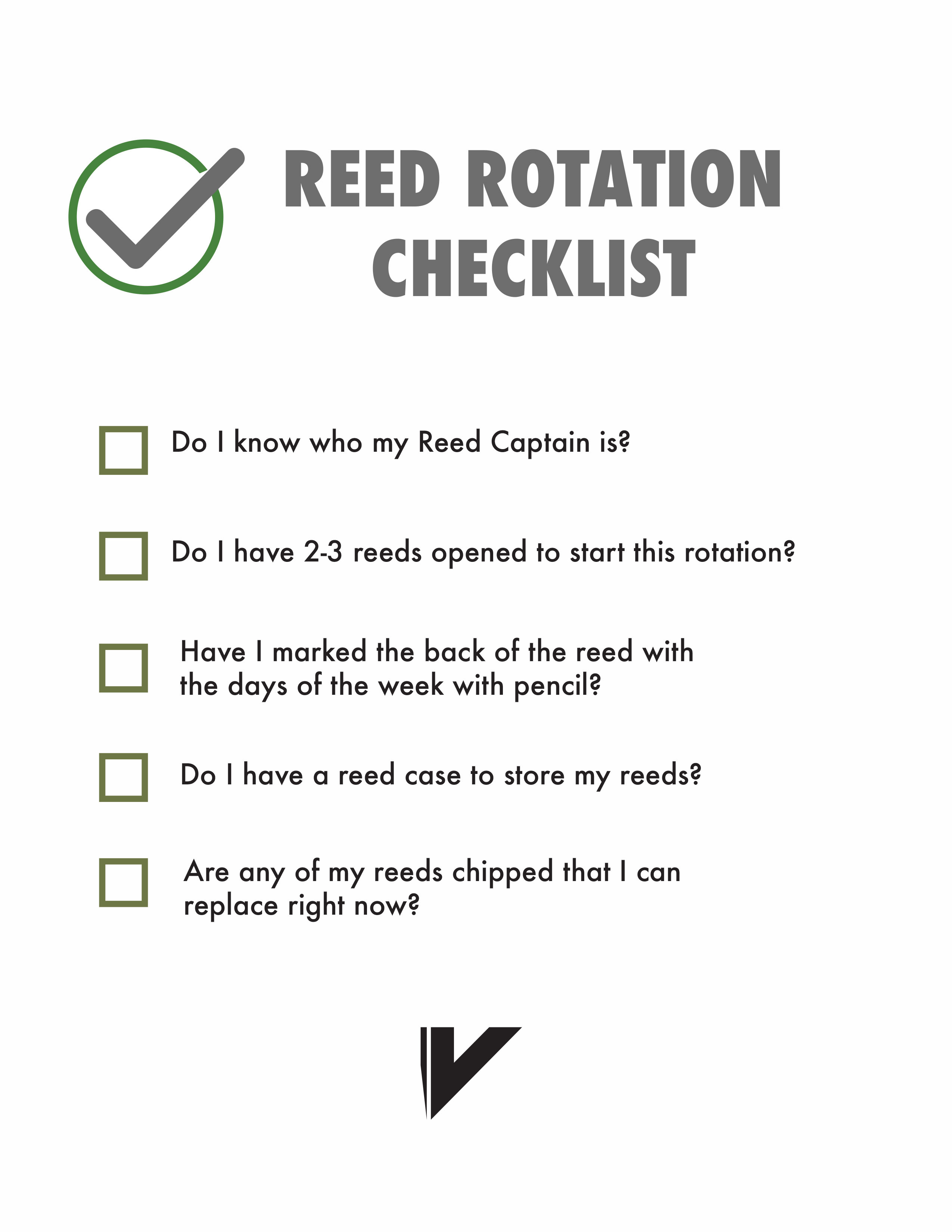The Reed Captain: Implement and Maintain Reed Rotation in Your Band Room
by Michael Skinner
Date Posted: September 29, 2020

We all know that a band director has very little time during the day to focus on things outside of the immediate task at hand – teaching music, so the ask, “I pledge to rotate” could sound like a lot of work.
It can be done with one simple appointment. Appoint one of your clarinet or saxophone students as the Reed Captain for the semester or the year.
The responsibility of the Reed Captain is to make sure every clarinetist or saxophonist is on the right reed of the rotation sequence. If you use our system of one reed for Monday, Wednesday and Friday and the other for Tuesday and Thursday, all the Reed Captain has to do is quickly announce that this is a Monday so use your Monday reed. And, as your students improve, you can expand to a four-reed rotation for Monday through Thursday. It’s a simple plan with huge benefits for the performance and health of your students.
The advantages of this system are not only musical and health (the reed rotation itself), but now you’re engaging in peer learning and promoting peer leadership which are very important as your young musicians eventually become leaders in your high school band and in their community.
Teaching virtually?
If you’re having groups online, try designating one person in that group to be the reed captain and allow them to ask questions of the group before rehearsal. If you have a scheduled meeting time for each group, establish what the reed rotation will look like (Monday, reed one, Wednesday reed two, etc.) and have your captain check in with the group before you begin the session. Rotate the Captain by month so everyone has this responsibility. This is a good way to build leadership and cohesiveness in your group and is a strong peer learning opportunity.
Resources and Handouts

Michael received his B.Mus. from Berklee in Music Education and his M.Mus. from the University of Miami in Composition before spending ten years as studio musician in New York City. Michael spent seven years in the D’Addario marketing department and ten years at Yamaha in educational marketing before co-founding DANSR in 2004.

